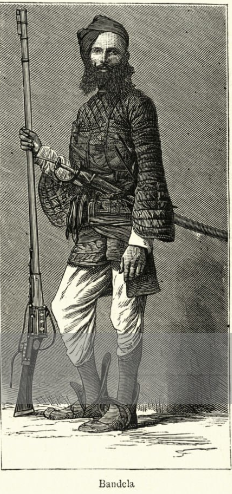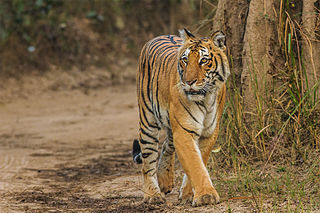
劉 / 刘 is an East Asian surname. pinyin: Liú in Mandarin Chinese, Lau4 in Cantonese. It is the family name of the Han dynasty emperors. The character 劉 originally meant 'battle axe', but is now used only as a surname. It is listed 252nd in the classic text Hundred Family Surnames. Today, it is the 4th most common surname in Mainland China as well as one of the most common surnames in the world.
Bisht is a surname found in the Indian state of Uttarakhand, Himachal Pradesh and country Nepal. The term "Bisht" originally referred to someone who held a land grant from the government. The Bisht families in Uttarakhand were chiefly Thokdars(Zamindars) of Thuljat origin. In Uttrakhand, Bishts are generally Kshatriya Rajputs. In Nepal, Bisht was adopted as a surname by Raute and Raji people. Bishta, as Bista, was also used as a surname used by Khas people, group under the caste Chhetri.
Parmar, also known as Panwar or Pawar, is a Rajput clan found in Northern and Central India, especially in Rajasthan, Gujarat, Punjab, Haryana, Uttarakhand, Uttar Pradesh, Bihar, Madhya Pradesh and North Maharashtra. The clan name is also used by Kōḷīs, Garoḍās, Līmaciyā Valands, Mōcīs, Tūrīs, Luhārs, Kansārās, Darajīs, Bhāvasārs, Cūnvāḷiyās, Ghañcīs, Harijans, Sōnīs, Sutārs, Dhobīs, Khavāsas, Rabārīs, Āhīrs, Sandhīs, Pīñjārās, Vāñjhās, Dhūḷadhōyās, Rāvaḷs, Vāgharīs, Bhīls, Āñjaṇās, Mer and Ḍhēḍhs.

Gu is a Chinese family name. Some places such as South Korea, and early immigrants from Wu-speaking region in China usually romanize this family name as Koo or Ku. It is the 93rd name on the Hundred Family Surnames poem.

The Bundela is a Rajput clan. Over several generations, the cadet lineages of Bundela Rajputs founded several states in area what came to be known as Bundelkhand anciently known as Chedi Kingdom from the 16th century.

Tehri Garhwal is a district in the hill state of Uttarakhand, India. Its administrative headquarters is at New Tehri. The district has a population of 618, 931, a 2.35% increase over the previous decade. It is surrounded by Rudraprayag District in the east, Dehradun District in the west, Uttarkashi District in the north, and Pauri Garhwal District in the south. Tehri Garhwal is a part of the Himalayas.
Yu is the pinyin romanisation of several Chinese family names. However, in the Wade–Giles romanisation system, Yu is equivalent to You in pinyin. "Yu" may represent many different Chinese characters, including 余, 于, 由, 魚 (鱼), 漁(渔), 楀, 俞(兪), 喻, 於, 遇, 虞, 郁, 尉, 禹, 游, 尤, 庾, 娛(娱), and 茹 (Rú).

The Wildlife Institute of India (WII) is an autonomous natural resource service institution established in 1982 under the Ministry of Environment Forest and Climate change, Government of India. WII carries out wildlife research in areas of study like Biodiversity, Endangered Species, Wildlife Policy, Wildlife Management, Wildlife Forensics, Spatial Modeling, Ecodevelopment, Ecotoxicology, Habitat Ecology and Climate Change. WII has a research facility which includes Forensics, Remote Sensing and GIS, Laboratory, Herbarium, and an Electronic Library. The founder director was V. B. Saharia while the first Director was Hemendra Singh Panwar who remained the director from 1985 to 1994. Trained personnel from WII have contributed in studying and protecting wildlife in India. The national tiger census or the All India Tiger Estimation, is done by WII along with NTCA and state forest departments.

Uttarakhand is a Himalayan state in North India, nestled between the Tibetan Plateau and the Indo-Gangetic Plains. The name, which means "northern land" or "section" or "northern part" in Sanskrit was made popular in the 80s as part of the wider statehood struggle within the region.

Garhwal Kingdom was an independent Himalayan kingdom in the current north-western Himalayan state of Uttarakhand, India, founded in 823 CE by Kanak Pal the progenitor of the Panwar dynasty that ruled over the kingdom uninterrupted until 1803 CE.
Pabarsa, also known as Baparsa or Pawarsa is a sub-urban village near Sardar Vallabh Bhai Patel Agriculture & Technology University, Modipuram (Meerut) having population of 2500 inhabitants. It is located at approximation of 750 meters from Main University Campus. Urban centre (Modipuram) of Meerut metropolitan city & Daurala nagar panchayat of Meerut district are very near to village approx 3.5 Kilometres in south east & north east directions respectively.
Bao or Pao is the pinyin romanization of two Chinese surnames, 包 and 鮑/鲍. It could also be a sinification of the Mongolian surname Borjigin. It is also a Vietnamese surname.
Kenud is a village of the Punasa tehsil of Khandwa district, in Madhya Pradesh state, India. Village is founded by Joraji Singh Badal. On 8 October 1818 on Navami Tithi of Shardiya Navratri in the Shukla Paksha of the Ashwin month, two villages Kenud and Chirakhan were established together. The land was bought from British Raj by the founder. Presently most of the people of the village depend on agriculture, workers and youth are dependent on the nearby city of Mundi and Shree Singaji Thermal Power Project for employment.
Chirakhan is a village of the Punasa tehsil of Khandwa district, in Madhya Pradesh state, India. Village is founded by Joraji Singh Badal. On 8 October 1818 on Navami Tithi of Shardiya Navratri in the Shukla Paksha of the Ashwin month, two villages Chirakhan and Chirakhan were established together. The was bought from British Raj by the founder. Presently most of the people of the village depend on agriculture, workers and youth are dependent on the nearby city of Mundi and Shree Singaji Thermal Power Project for employment.
Panwar is a Rajput clan found in Northern India.
Koligarh, also spelled Koligad or Koligadh, is a castle in Basrambu Patti of Garhwal in Uttarakhand, India. It is one of the fifty two castles of Garhwal. It was ruled by Koli chieftain Jhagad Singh Negi who was its last ruler because he was defeated by first ruler of Garhwal Kingdom Ajay Pal and annexed in it.
The Panwar is a Rajput clan found in Northern India, particularly in Uttarakhand, Himachal Pradesh and Punjab. They are an off-shoot of the Panwar Paramara dynasty, which ruled in Ujjain and later in Dhar.






